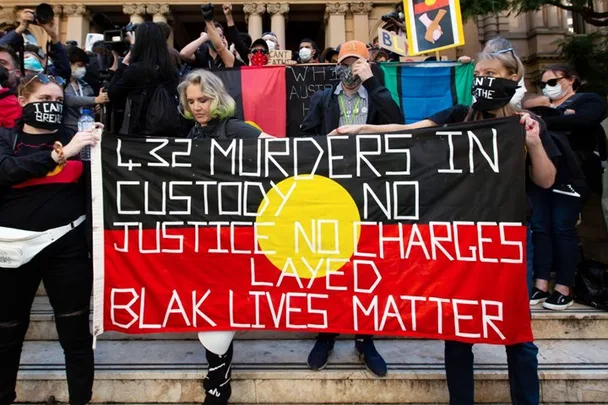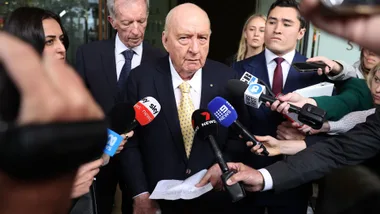Growing up in Australia with Middle Eastern heritage, journalist Antoinette Lattouf rarely saw people in media who looked like her. It’s why she co-founded Media Diversity Australia, helping diversify Australian media and hold it to account.
In her new book, How To Lose Friends and Influence White People, she explores how people can make a difference and improve racial equality, whether by confronting a racist relative at lunch, or helping a CEO understand institutional barriers to people of colour in the workplace.
Below, you can read an extract that explores the little understood layers of racism in Australia. Pre-order a copy of How To Lose Friends and Influence White People, out May 3.
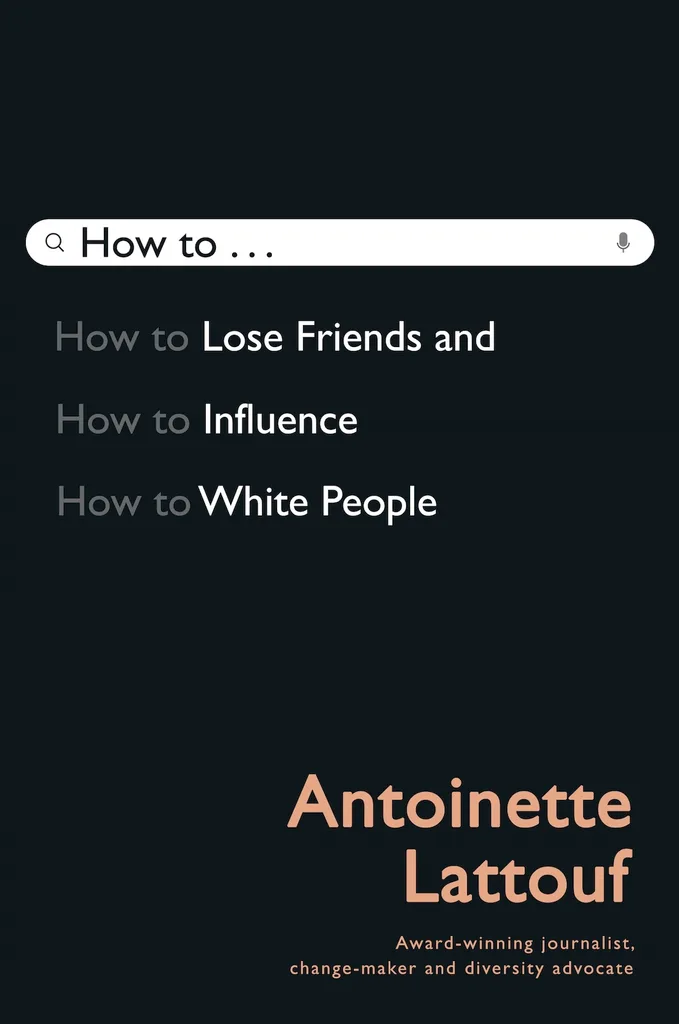
It was interesting witnessing the response to Black Lives Matter [in Australia] among non-Black families of colour, especially in immigrant and refugee families.
It further highlighted to me how non-Black people of colour can be racist and face racism at the same time. Relatives of mine who were in and out of the criminal justice system in their youth and early adult life and who had previously complained about how police targeted young men ‘of Middle Eastern appearance’ were now posting things with the hashtags #AllLivesMatter and #BlueLivesMatter.
The hypocrisy, lack of empathy and short-sightedness was astounding. These were the very men who despised the New South Wales police forming the controversial Middle Eastern Organised Crime squad (MEOC) in 2006, whose business was to take down the so-called ‘Lebanese gangs’.
Perhaps surprisingly, these anti-Black Lives Matter attitudes came from some individuals who bore the brunt of the extensive racialised moral panic over ‘Lebanese gangs’.
It’s almost an unwritten social code in Australia: any crime committed by a non-white person will be used to besmirch their entire community. This is despite Australia’s most notorious and bloodthirsty mass shooters being white men – Martin Bryant and Brenton Tarrant.
This is why it is disappointing to see people from my community – who have been the subject of much discrimination and vitriol – not realise what they’ve endured is almost certainly worse for Indigenous people.
I spoke to sociologist Professor Andrew Jakubowicz about this. He agreed that anti-Black sentiment expressed by non-Black people of colour is a grossly under-researched area, but one policymakers shouldn’t ignore. Jakubowicz has spent fifty years researching race relations, multiculturalism and migration. It is overlooked.
“There’s really no one doing much here and if they are, it’s either cultural diversity or cultural politics. No one has merged those two areas and done research and analysis on its impact,’ he told me.
‘Australia has a long history of the last people through the gate pulling it shut behind them. There is another thing in Australian multiculturalism of trying not to be Black.’ He argued that previously the ‘Irish were considered Black, Greeks were Black, Italians were Black, Arabs were Black. By this, I mean not white and deemed to be racially inferior and categorised therefore as Black in some way or another.’
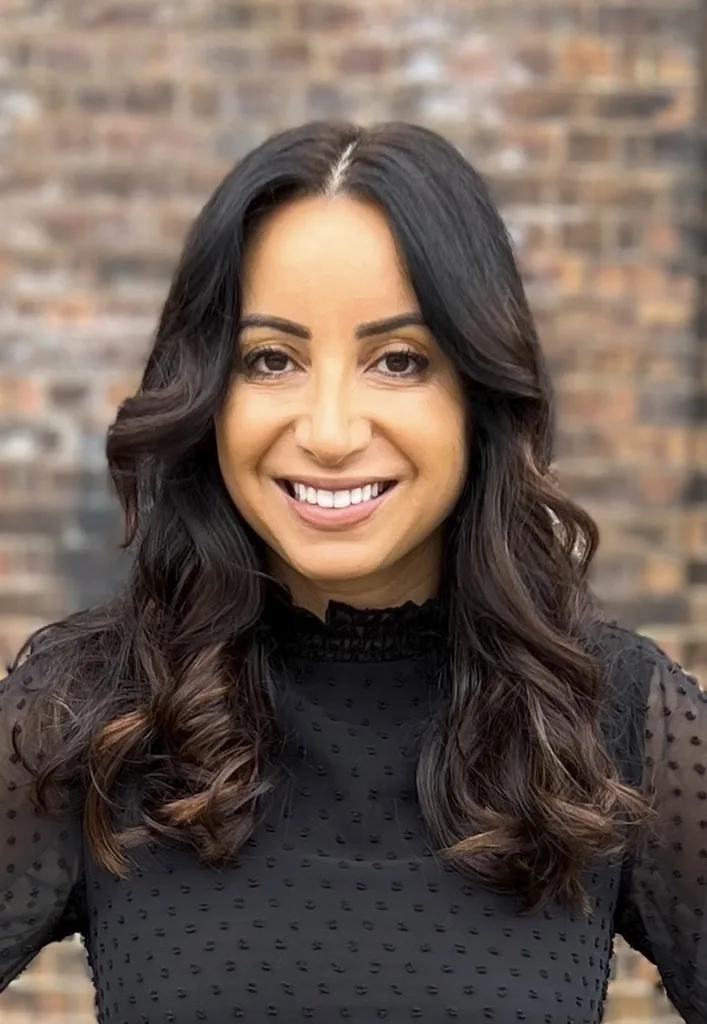
Jakubowicz argued that while Australia likes to see itself as a multicultural democracy it functions more like an ethnocracy.
Since Federation in 1901, the country was designed to ensure nationals of British descent would be able to create a society populated by individuals as much like themselves as possible.
The term ‘ethnocracy’ was coined by Israeli geographer Oren Yiftachel.
It was used to explain regimes which claim to be democratic, but are clearly ruled by a particular ethnic group. First used to describe the substantial power imbalance between Jews and Palestinians and ethnically based laws in operation in the Israel-occupied West Bank, scholars have now applied it in more geographically broad contexts.
In an ethnocracy, a single ethnic or religious grouping dominates the courts, media and social institutions, and uses this power to maintain the control and oppression of others.
Those who don’t fit the mould are excluded, and if you dare to challenge it you are condemned and ousted.
Jakubowicz puts it bluntly and pretty vividly: ‘If you’re Black you get pissed on, so it’s better not to be Black. If you can locate or place yourself on the right side of the divide – which is the white side – then that gives you a certain status and security, at least in your own mind.’
But surely those who have felt the brutal blows of racism and inequality don’t just forget how that felt and still carry those scars? ‘It’s not so much a memory lapse as an escape plan,’ Jakubowicz told me.
‘Anti-Aboriginal and anti-Black sentiment among many migrant communities can be enormous and intense. It is self protection and group protection – as a way to not be treated as Black and get knocked down due to racism, lack of education and limited opportunity pathways,’ he said.
Despite his observations during five decades of expertise in the field, there is very little in the way of qualitative and quantitative research that closely examines racism from migrant and refugee groups towards Black communities. The data available overwhelmingly looks at racism more broadly, and in some cases groups multicultural experiences together with Indigenous experiences.
Ethnographic research undertaken by Rose Butler in 2018 investigated how young people from migrant and humanitarian refugee backgrounds were managing differences and finding belonging in two rural towns. In interviews with children and their parents, her work captured glimpses of what I’ll call brown on Black racism. Some of the parents from humanitarian refugee backgrounds adopted ‘local racisms towards Aboriginal families’, Butler found.
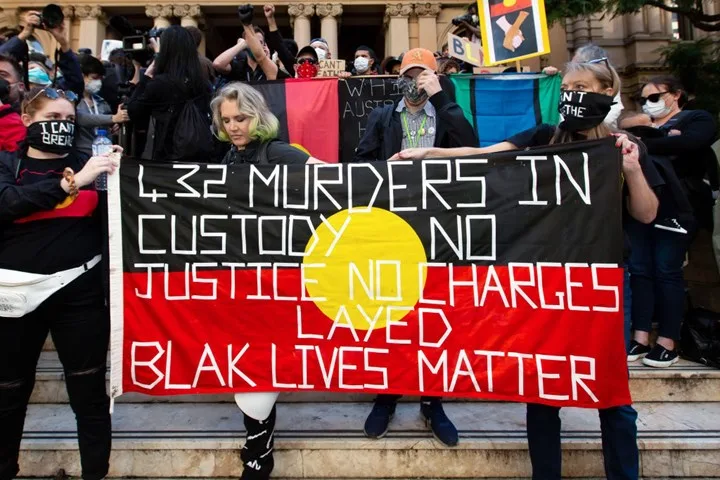
‘This shows that not only must existing conditions of migrant communities be considered in terms of rural settlement . . . but that attention must be paid to historically-generated conditions of race and class which shape relationships in Australia’s transforming rural towns,’ Butler and her colleague Jehonathan Ben noted in 2020.
Lloyd Changaira, a Melbourne-based sociologist and PhD candidate with a focus on Southern African experiences, has examined racism directed at Africans by other people of colour. In 2018, he interviewed twenty-eight Southern Africans and found that while most of the discrimination and racism participants talked about came from ‘white Australians, intercultural racism also affected the wellbeing of the participants. Relatively larger and well-established migrant groups, for example, Lebanese-Australians, Indian-Australians and ChineseAustralians,’ he wrote in his thesis, which is currently being examined.
Changaira told me his findings mirrored his own lived experiences.
‘The people I interviewed have often said that the racism they experienced by other minorities is because they see themselves as the better minority. Yet so much of the focus is just on white on Black racism, and it doesn’t take into account this other layer of racism Black people face. I wasn’t surprised, to be honest, because I am part of the community and it is what I have seen and experienced myself,’ he said.
He agreed that more research in this area is needed to help drive policy, given non-whites in Australia are not a homogenous group.
One interviewee, an auto mechanic, told Changaira about the difficulty he faced getting a job in businesses owned by people with Arabic-speaking backgrounds. When he finally got a job, the man noticed he was paid less than non-African colleagues and was asked to do harder and more complex work than his Middle Eastern colleagues. He quit that job within a few months.
‘For example, the Vietnamese and the Lebanese are not as physically distinct from the mainstream compared to the Africans and when we come to Australian society, we are entering a legacy of anti-Blackness due to Indigenous Australians and the discriminatory history,’ the academic told me.
Antoinette Lattouf is an award-winning journalist, commentator, the co-founder of Media Diversity Australia and the author of “How to Lose Friends and Influence White People”.
